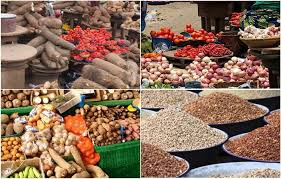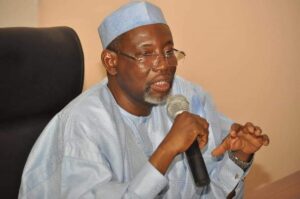

UN World Food Programme to support Nigeria, seven others on food shortage
The United Nations World Food Programme has conceived a food initiative to support Nigeria and seven other West and Central African countries to tackle hunger, shortages of food items, and soaring prices.
Other countries to benefit from the initiative are Cameroon, Central African Republic, Chad, Mali, Mauritania, Burkina Faso and Niger.
The WFP in a statement on its website, read, “We are ramping up our lifesaving food and nutrition assistance programme in West and Central Africa, targeting 7.3 million people during the ongoing June-August lean season when food stocks run out and hunger peaks. The programme which kicks off in June, supports national governments’ lean season response plans in Burkina Faso, Cameroon, Central African Republic, Chad, Mali, Mauritania, Niger, and Nigeria.”
“The number of people the World Food Programme will target as part of the programme could expand to 12 million people if adequate funding allows. But dwindling resources available for humanitarian operations means that despite near-record level needs, WFP has been forced to assist fewer people than originally planned.
“West and Central Africa is in the grips of a severe food security and nutrition crisis – with nearly 55 million people projected to face acute hunger during the June-August lean season – a fourfold increase on the 12.6 million people facing acute hunger in 2019. Malnutrition has also reached extraordinary levels, with an estimated 17 million acutely malnourished children under five,” the statement stated.
On his part, WFP’s Regional Director for Western Africa, Chris Nikoi, said, “The alarming hunger crisis in the region underscores the urgent need for transformative solutions to help vulnerable families meet not only their immediate food needs but also build a brighter future.
“We need to continue prioritising emergency response for those most in need. But we need more investment in sustainable solutions to help strengthen food security, improve agricultural productivity, purchasing power of families at the right time, and cushioning economic and climate shocks,” Nikoi added.
The food crisis in West and Central Africa is driven by conflicts, high food prices, and the climate crisis. Economic shocks linked to market disruptions, high inflation and weakened economic activities, depreciating national currencies and increasing costs of fuel and agricultural inputs have inflicted a significant toll on people – particularly in Nigeria, Ghana, and Sierra Leone.
“WFP’s lean season response aims to meet the immediate food and nutrition needs of those most exposed to acute hunger – including refugees, the most vulnerable displaced people, severely food insecure people, and people in blockaded areas adversely impacted by climatic, economic and security crises.
“While the crises continue to increase in magnitude, frequency, and complexity in the region, funding to respond has not kept apace – leaving even some of those facing the most acute needs without assistance. As a result, millions of food-insecure families are left without assistance, and at risk of sliding further into the most severe levels of hunger next year.
“This is especially worrying as the 2024 seasonal forecasts paint a grim picture of both dry spells and floods in parts of the region, potentially disrupting farming and livestock productivity, prolonging the next lean season, and exacerbating the vulnerability of hard-hit communities,” the statement warned.
“The escalation of humanitarian needs far outstrips available resources. The only way out of this cycle is to prioritise as well durable solutions,” Nikoi insisted




